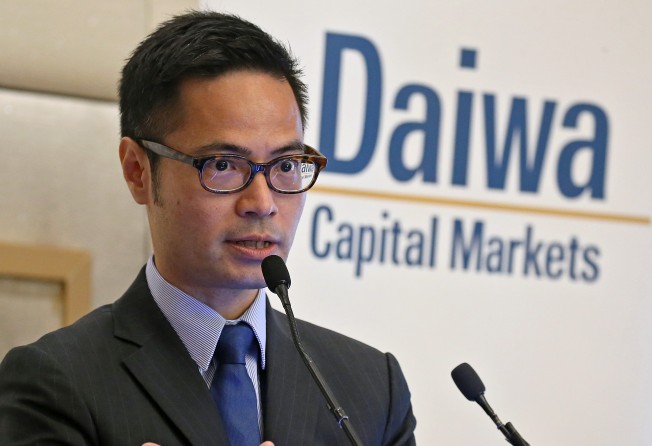Financial markets not taking rising North Korea risks into account
Stand-off fails to curb buoyant offshore yuan and Hang Seng Index

The US continues to explore diplomatic solutions to persuade North Korea to give up on its nuclear weapons ambitions but time is running out, said Kevin Lai, the chief economist at Daiwa Capital Markets.
The odds of a military option are rising even if financial markets appear to be ignoring the deterioration in the situation, he added.
Under the rule of Kim Jong-un, the country has made significant progress militarily, the last hurdle being an ability to miniaturise a nuclear weapon into a warhead, which for many scientists is not that difficult, Lai said. “If the US waits another six months and Kim achieves deliverable nuclear weapons, the risk will be enormous and potentially meaning that North Korea can strike Los Angeles.”
Daiwa has raised the probability of this “endgame scenario”, the military option, from 20 per cent to 35 per cent. At the same time, it has cut the odds of the US and other partners tolerating North Korea’s possession of nuclear weapons, hoping it will never use these, to 5 per cent from 10 per cent.
US president Donald Trump, who is on an official visit to Asia, called North Korea “hell” during a fiery speech this week, warning that he had a US nuclear submarine “appropriately positioned”.
Naming Russia and China – where he is due next – Trump said all responsible nations must join forces to isolate Pyongyang, and deny it any form of support, supply or acceptance.
But the offshore yuan seems to be shrugging off any tensions on the Korean Peninsula and remains above 6.64 to the US dollar. Hong Kong’s Hang Seng Index too has been making fresh 10-year highs.
Data on Wednesday showed that China’s foreign exchange reserves rose for a ninth month to US$3.12 trillion in October, reflecting dissipating yuan depreciation expectations.
“If they fire an ICBM [intercontinental ballistic missile], it will have huge consequences but until it happens, these risks are very difficult to price into financial markets,” said Nathan Chow, an economist at DBS Bank.
“If China is unwilling to step up on sanctions against North Korea, then this may lead to trade friction and fluctuation in the yuan,” Chow said.
“As far as Kim is concerned, North Korea will definitely test another missile again, and this means market risks are being accumulated now.”
So the window for the US to denuclearise North Korea may be about six months. A whole new paradigm may emerge in the region when places such as Taiwan and South Korea will also want to have nuclear weapons, which is probably against China’s wishes, Lai said.
“It is in everyone’s interest to discuss the options available, not just the US and North Korea,” he added.